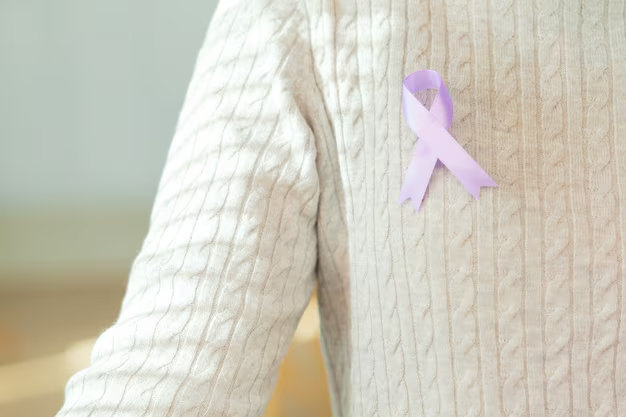Recognizing Cancer: Signs, Symptoms, and Awareness
Cancer. It's a word that often triggers fear and uncertainty. But knowledge can be empowering. Understanding the signs and symptoms of cancer, and knowing when to seek medical advice, is crucial for early detection and better outcomes. This guide will explore various ways you might recognize cancer's presence in your body, offering insights without providing medical advice.
Unraveling Cancer Symptoms: The Subtle Indicators
Unexplained Weight Loss
One of the more common signs of cancer, especially concerning the pancreas, stomach, esophagus, or lung, is unexplained weight loss. If you've lost weight without significant lifestyle changes such as diet or exercise alterations, it might warrant further medical examination.
Persistent Fatigue
While fatigue is a broad symptom applicable to many conditions, persistent fatigue that doesn't improve with rest might be indicative of leukemia, colon cancer, or stomach cancer. It's critical to consider how this fatigue interferes with daily activities.
Continuous Pain and Discomfort
Chronic pain, especially if it's persistent and untreated, can be a sign of cancer such as bone cancer or testicular cancer. The nature and location of pain should be closely monitored, as ongoing discomfort could indicate that something isn't right.
Skin Changes
Your skin can be a window to your overall health. Keep an eye out for new lesions or moles, changes in moles, or non-healing sores. These could signal skin cancers, such as melanoma. Furthermore, yellowness, darkening, or redness of the skin might point to other underlying issues.
The Role of Regular Screenings and Check-Ups
Routine medical check-ups and cancer screenings can reveal early signs of cancer long before symptoms emerge. Here’s a more detailed look at why these are essential:
Routine Health Checks
Regular visits to your healthcare provider can result in the early detection of potential health issues, including cancer. During these visits, your doctor may perform a clinical breast exam, pelvic exam, or testicular exam, depending on your age and risk factors.
Cancer Screenings
Specific screenings are recommended for different types of cancer. These include:
- Mammograms for breast cancer
- Pap tests for cervical cancer
- Colonoscopy for colon cancer
These screenings are essential for catching cancer early, even before symptoms show.
Understanding Family History and Genetic Risks
The Genetic Connection
Cancer can sometimes run in families due to inherited genetic mutations. Knowing your family's medical history can inform you of potential risk areas.
Key Takeaways:
- If several first-degree relatives have had cancer, your family might carry genetic mutations that increase cancer risk.
- Genetic counseling and testing can provide clarity and options for managing these risks.
Which Cancers are Considered Hereditary?
Some cancers with notable hereditary links include:
- Breast cancer
- Ovarian cancer
- Prostate cancer
- Colon cancer
Being aware of these links and discussing your family history with a healthcare provider can guide decisions about proactive screenings.
Lifestyle and Environmental Factors: Their Impact
The Role of Lifestyle Choices
Lifestyle factors play a significant role in cancer risks. Your choices regarding diet, exercise, and habits like smoking or alcohol consumption might increase or decrease your risk.
Proactive Choices:
- Adopting a balanced, nutritious diet
- Staying physically active
- Avoiding tobacco and limiting alcohol
Environmental Exposures
Environmental factors such as exposure to harmful chemicals, pollution, or radiation can elevate cancer risks. It’s practical to be mindful of these exposures in your daily life.
When to Seek Medical Advice and Consultation
Observing Your Body
Be vigilant about changes in your body. Key signs include:
- Persistent cough or hoarseness
- Unusual bleeding or discharge
- Lumps or thickening in the body
Consulting a Healthcare Professional
If symptoms persist or you notice unexpected changes, consult a healthcare professional. Early consultation can lead to prompt investigation and potentially better outcomes.
Emotional and Mental Health: Support is Key
Facing the possibility of a cancer diagnosis can be daunting, but remember, you’re not alone. Emotional support from family, friends, or support groups can be invaluable.
Coping Strategies
- Connect: Join support groups or talk with people who understand what you’re experiencing.
- Express: Don’t hesitate to express your feelings—whether through talking, writing, or art.
Your Guide to Recognizing Potential Cancer Symptoms:
- Unexplained Weight Loss 💡: Look for weight loss that’s not due to diet or lifestyle changes.
- Persistent Fatigue 💤: Watch for fatigue that impacts daily life and doesn’t improve with rest.
- Chronic Pain 🚨: Pay attention to continuous, unexplained pain.
- Skin Changes 👀: Monitor for new growths or changes in moles.
- Family History 👨👩👧👦: Review your family's medical history for patterns.
- Lifestyle Choices 🏃♂️🥦: Maintain a healthy lifestyle to reduce risks.
- Environmental Exposures 🌍: Minimize exposure to harmful agents.
- Seek Medical Advice 👩⚕️: Always consult a professional if symptoms persist or are concerning.
Staying informed, being observant, and taking proactive steps can empower you in managing your health. Remember, while this guide provides informational insights, it's essential to work with healthcare professionals for any health-related concerns. You’re never alone on your journey—stay aware, stay healthy.

Related Articles
- Are Breast Cancer Lumps Painful
- Are Chills a Sign Of Cancer
- Are Colon Spasms a Sign Of Cancer
- Are Lytic Lesions Always Cancer
- Are Polyps Cancer
- Can a Blood Test Detect Cancer
- Can a Ct Scan Detect Cancer
- Can a Dexa Scan Show Cancer
- Can a Gastric Emptying Scan Show Cancer
- Can a Lung Biopsy Cause Cancer To Spread
